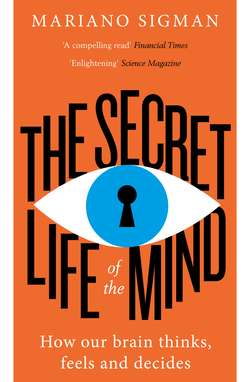Читать книгу The Secret Life of the Mind: How Our Brain Thinks, Feels and Decides - Mariano Sigman - Страница 24
I, me, mine and other permutations by George
ОглавлениеLong before becoming great jurists, philosophers, or noted economists, children – including the children that Aristotle, Plato and Piaget once were – already had intuitions about property and ownership. In fact, children use the pronouns my and mine before using I or their own names. This language progression reflects an extraordinary fact: the idea of ownership precedes the idea of identity, not the other way around.
In early battles over property the principles of law are also rehearsed. The youngest children claim ownership of something based on the argument of their own desires: ‘It’s mine because I want it.’fn14 Later, around two years of age, they begin to argue with an acknowledgement of others’ rights to claim the same property for themselves. Understanding others’ ownership is a way of discovering that there are other individuals. The first arguments outlined by children are usually: ‘I had it first’; ‘They gave it to me.’ This intuition that the first person to touch something wins indefinite rights to its usage does not disappear in adulthood. Heated discussions over a parking spot, a seat on a bus, or the ownership of an island by the first country to plant its flag there are private and institutional examples of these heuristics. Perhaps because of that, it is unsurprising that large social conflicts, like in the Middle East, are perpetuated by very similar arguments to those deployed in a dispute between two-year-olds: ‘I got here first’; ‘They gave it to me.’
